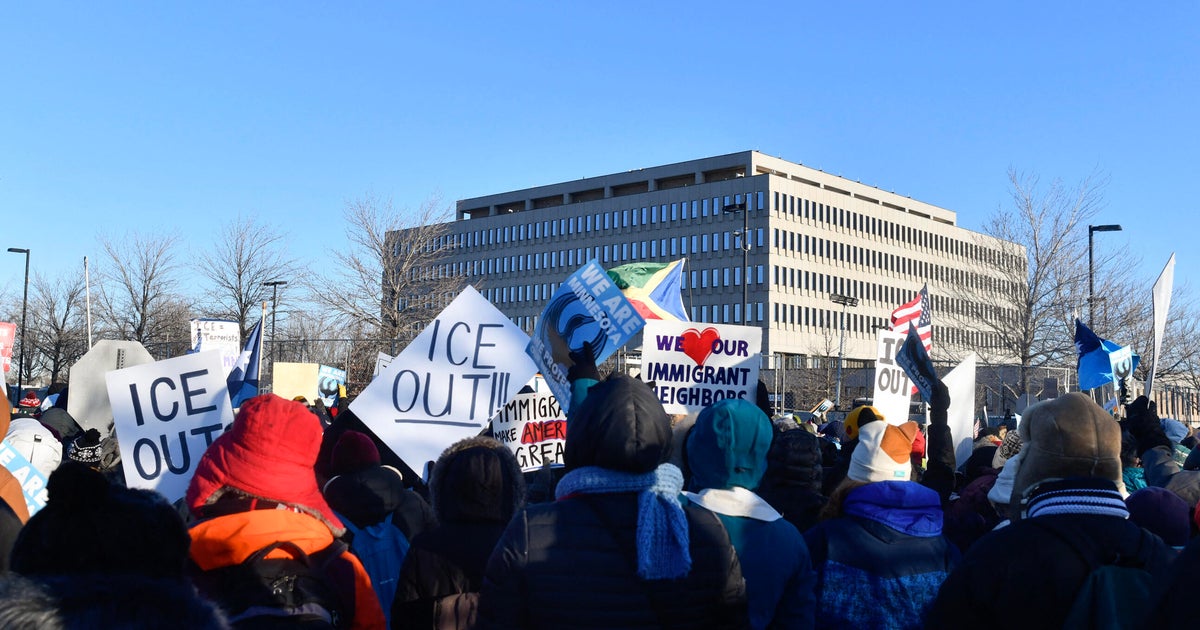Protesters rally against Trump's anti-immigrant rhetoric, plan
WASHINGTON -- A standing-room-only crowd packed into a historic African-American church in downtown Washington on Saturday for one of dozens of rallies around the country supporting immigrant rights.
People attending included immigrants who lack permission to be in the country and their relatives and supporters. Also present were elected officials, clergy and representatives of labor and women’s groups. A line to enter Metropolitan AME Church stretched nearly a city block, and when a fire marshal declared the building full, dozens marched outside in cold, rainy weather to support the rally.
Participants carried signs with messages including “Resist Trump’s Hate” and “Tu, Yo, Todos Somos America,” which translates to “You, me, we all are America.” Speakers denounced President-elect Donald Trump for his anti-immigrant rhetoric and his pledges to build a wall on the U.S.-Mexican border and to crack down on Muslims entering the country.
“Many more like me feel ashamed of their status, because of the intolerance and hatred toward immigrants and refugees,” said Max Kim, 19, who was brought to the U.S. from South Korea when he was 6 and lacks legal permission to stay in the country. “I stand here because I have nothing to apologize for. I am not ashamed of my status because it is a constant reminder to myself that I have something to fight for.”
The crowd urged Mr. Trump and the Republican-controlled Congress not to undo the Deferred Action for Childhood Arrivals program, aimed at helping people like Kim who were brought to the country as children.
“It works and I’m living proof of it,” said Martin Batalla Vidal, one of the 750,000 young immigrants covered by the program. Many DACA recipients are college-educated and politically savvy and have been willing to hold sit-ins and risk arrest to push for immigration changes.
Elected officials in attendance said Mr. Trump’s rhetoric and policy proposals are inconsistent with American values.
“We are not going to allow Donald Trump to bury the Statue of Liberty,” said Sen. Chris Van Hollen, a Maryland Democrat. “We are a nation for all people, regardless of religion, regardless of background, regardless of who you love.”
The protests mark the latest chapter in a movement that has evolved since 2006, when more than a million people took to the streets to protest a Republican-backed immigration bill that would have made it a crime to be in the country illegally. The bill was widely viewed as overly harsh and sparked a backlash that culminated in massive May Day marches across the country.
The crowds this weekend are expected to be nowhere near as big as then, including rallies at a church in Washington and teachers’ union hall in Chicago. In Los Angeles and San Jose, California, groups are holding cultural events to show their support of immigrants and opposition to Mr. Trump’s proposals.
In recent years, advocacy groups have started making direct appeals to lawmakers and the president.
After multiple proposals failed in Congress, President Barack Obama in 2012 launched an executive effort to protect some young immigrants from deportation.
The creation of the Deferred Action for Childhood Arrivals program, aimed at helping one of the loudest and most sympathetic immigrant groups, was heralded as a good first step by advocates who hoped it would be a prelude toward overhauling immigration laws.
But that didn’t happen, and Republican-led states pushed back against Obama’s plans to expand the program.
Now the focus is on the next administration, and the future of the movement seems as uncertain as Mr. Trump’s plans.
As a candidate, Mr. Trump promised his supporters stepped-up deportations and a Mexican-funded border wall, but it is unclear which plans the celebrity businessman will act on first, and when. And many immigrants are fearful of the campaign rhetoric but less motivated to protest in the absence of specific actions.
Many participants Saturday said they would keep the pressure on Mr. Trump and said they planned to participate in next Saturday’s Women’s March on Washington.
“The threat of deportation is imminent for our communities,” said Cristina Jimenez, executive director of United We Dream and one of the rally’s organizers. “We will keep fighting. We’re not going back into the shadows.”



